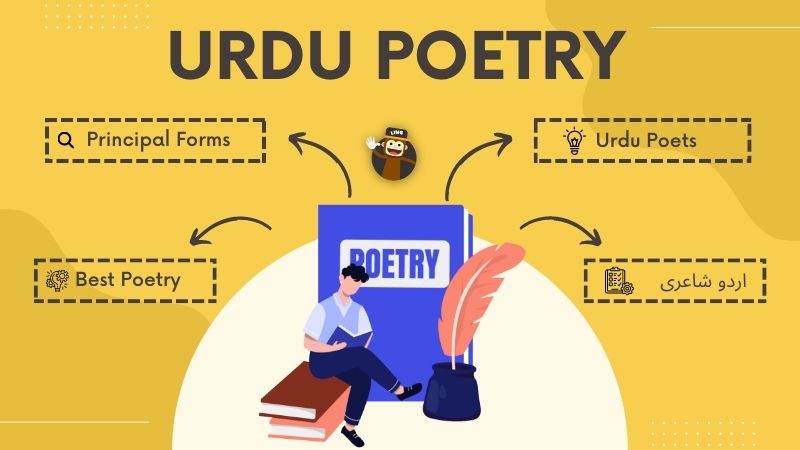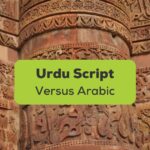Urdu is a beautiful language that is especially known for its poetry. Due to its amazing linguistic features, Pakistani people are fond of reading and writing, especially the romantic genre. In this blog post, you will learn everything about Urdu poetry, so let’s get started without further ado!
The Urdu word shayari (شاعری) is used for poetry in this language. Urdu poetry is an influential culture in itself. It is an extended topic with many forms and genres, making it a great way to learn more about the locals’ language and traditions.
It somehow reflects the symphonic vibes of Asian customs and weaves culture like pearls in words. It always leaves a calming and endearing effect on its readers and listeners. With this said, Urdu poetry has experienced a lot of fame and respect since the Mughal empire, and even today, its status is very significant.
Principal Forms Of Urdu Poetry
Let’s first go through the fundamental terms in Urdu poetry:
Ghazals (غزل)
Ghazals are one of the most strenuous and aesthetic parts of Urdu poetry. It has set regulations for writing, and without following them, Urdu poetry incomplete. Many people in Pakistan read and write ghazals as a hobby.
For ghazals, at least five couplets- ashaar (اشعار) ending with the same rhymes are put in writing. It is a series of lyrical calligraphy, the couplets may differ in line of thinking. Poets express their feelings of sadness, love, and romanticism through convoluted and absorbing stanzas- sher (شعر) in a ghazal.
In Urdu literature, a ghazal is regarded chiefly as an appreciation of love and beauty by a lover- poet. Mirza Ghalib, Mir Taqi Mir, and Allama Iqbal have penned precious ghazals and made history. Urdu writers have also written Persian ghazals, which are still available with translations.
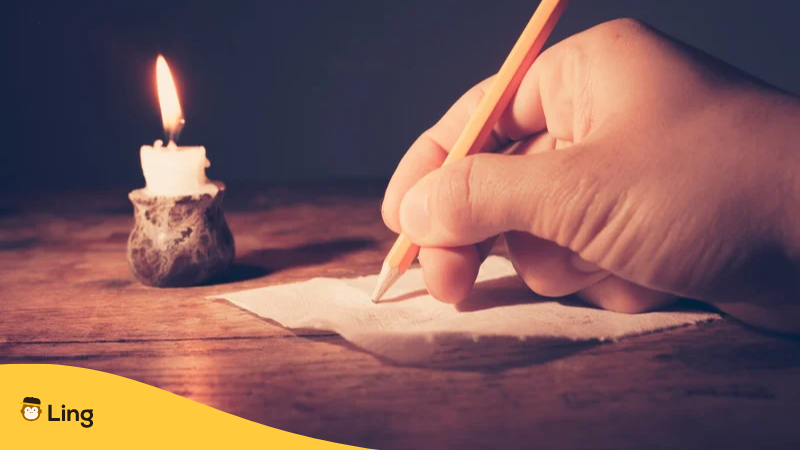
Hamd (حمد)
The word hamd- (حمد) is derived from the Quran (holy book of Muslims), meaning to praise Allah (God in Islam), and is used in many dialects such as Urdu, Arabic, Persian, and Turkish. So basically, hamd is a poem written in love and praise of Allah, it is associated only with Him.
This poetic genre doesn’t have such strict rules for stanzas and prose. Poets express their love by pure and faithful praising. For this reason, the stanzas may or may not be rhyming.
It has an ancient history in the subcontinent. Many poets are generally known for their beautiful work in Urdu and Persian. Many famous vocalists like Nusrat Fateh Ali Khan, the Sabri brothers, Sami Yousaf, etc., have recited Quranic verses and praised Allah in their beautiful voices.
Naat (نعت)
It is also an Arabic word meaning praise. In this type of poetry, the poet expresses their inner feelings and love for Muslim Prophet Muhammad in engrossing and charming prose. The naat pattern includes almost two verses with the rhyming scheme, or it can also be written in couplets. It consists of an appreciation of the Prophet’s good deeds, life, and sacrifices.
Most people in Pakistan recite naats in religious gatherings called milaad (ملاد), more specifically on the occasion of Eid-e-Milad an-Nabi (عید ملاد انبی). This word means ‘feast of the birth of prophet’ and is originated from the Arabic language.
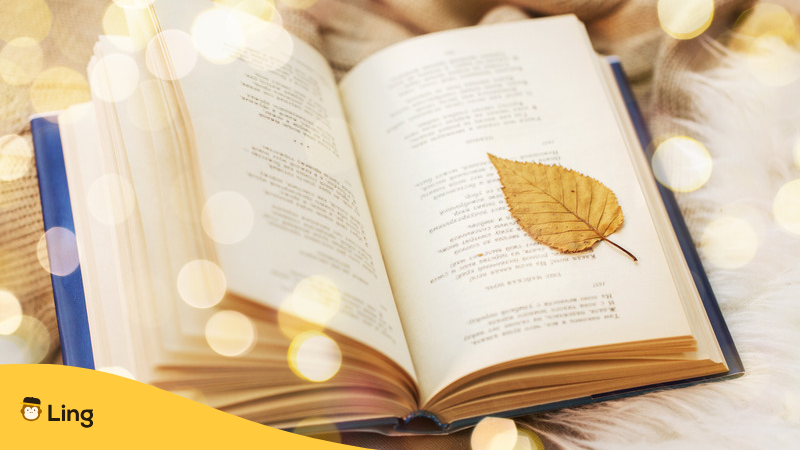
Marsiya (مرثیہ)
It is related to a religious ceremony called Karbala- martyrdom of Hasan, Husain, and their relatives. This piece of poetry is associated with the grief and miseries of Karbala and to aware Muslim ummah with their sacrifices and jihad- the holy war of Muslims.
The marsiya is also an Arabic word Risa – requiem for the defunct souls. It’s a sorrowful poem to remember the martyrs and hold them in high regard for all their oblation.
It is written in couplets and quatrain with different rhyming schemes. It has strict parameters to follow for its completion and is also recited by many vocalists on religious occasions during the Islamic calendar’s first month, Muharram. Many Urdu poets from India and Pakistan have expressed their love by putting martyrs’ tragic and painful death stories on pages.
Manqabat (منقبت)
Manqabat is a Sufi ecclesiastical poem written in praise and remembrance of the son-in-law of the Holy Prophet – Imam Ali Ibn Abi Talib. He was a Sufi saint, so much poetry is also written for other Sufi characters in a spiritual way.
Its prose has the same theme as other praising poems. All the love, devotion, and glory are committed to paper. The poetic verses are sung at special religious decorums in Qawalis, and all peers and Sufis are admired.
Nazm (نظم)
It is one of Urdu literature’s standard and basic features and doesn’t have boundaries regarding notions and forms. These poems can be written for any purpose for anyone, and the poet can dedicate them to their country, friends, loved ones, and many more without limitations.
There are no such ground rules and customs for nazm regarding verses and length, but they are always on one finalized theme. Some nazms follow rhyming strategies, while some don’t have any rhymes.
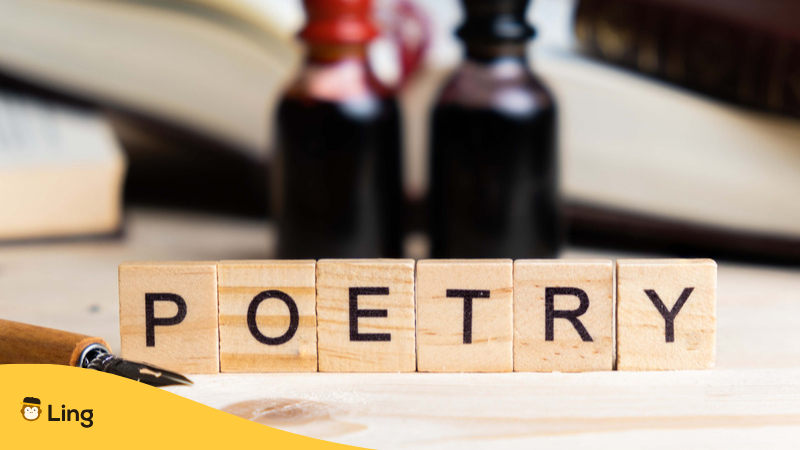
Urdu literature contains poems and pros with thousands of thoughts and topics. Allama Iqbal – the national poet, has penned many worthy lyrics and given the Urdu language a high rank throughout history.
Qasida (قصیدہ)
It originated from the Arabic language and then transmitted to the culture of other languages like Urdu and Turkish. The Arabic word qasida means “purpose” or “intention.” It is also a series of poetic verses with rhyming schemes like ghazals, but it is more significant in length and contains more couplets than ghazal.
It can be written to praise someone or for any special event. It includes both Islamic prose and other local native poems. In Urdu poetry, there are many famous qasidas written on topics of love and devotion. Mohammad Ibrahim Zauq is known as the king of Qasida who penned many proses and gained fame through them.
Masnavi (مثنوی)
It is based on any story, tale, or specific subject. It is written on stories and occasions from the Quran and other Islamic perspectives.
Many Persian and Arabic poets have written Islamic masnavi, like Moulana Jalal-ud-Din Rumi and many others. But the Urdu language is not bound to a specific subject, and many are written on the aspects of romanticism. It has many sets of couplets with rhyming strategies. The rhyming words may differ from each couplet, but they are the same in verse. It can be as long as a thousand verses and short.
Rubai (رباعی)
This term is related to quatrain – four lines of prose- and is derived from the Arabic language. The rhyming scheme switches between the first to fourth lines but has no restraint regarding tempo and pattern. It can be the same or different in each verse. It uses colorful language in order to engage and deeply interact with the readers’ minds.

Tazkira (تذکرہ)
It originated from the Persian language meaning “to remember and memorize.” It is related to the biography of a person, and it is a book on events and poets’ lives completed in verse.
Different poets are appreciated for their way or style of writing and their incredible work with details of their lives. By writing such books, many precious memories regarding poets and other Sufis are kept safe and marked in history. In Urdu history, many such biographical books have given us information and recollections regarding the prominent people in the history.
Pen Names (تخلص)
It is an Arabic word meaning “ending.” In Urdu poetry and literature, many poets use their names in the end verses of their poetry. It is one of the classical traditions of Urdu poetry and is known as takhallus- (تخلص) in Urdu.
Many poets use their real names, while some use other poetic words chosen by them. This ethic is adopted mainly by Urdu, Persian, Punjabi, and many Arabic poets, and it adds a remarkable ending to their glamorous writings.
In Urdu poetry, pen names have been commonly used by Ghalib, Faiz, Gali, Iqbal, Hali, Mir, and many more.
Urdu Collections
In Urdu literature, many such books contain assemblages of ghazals and poems. These are created to preserve the golden work of poets.
The term “dewan “and “kulliyat” are used for such collections. Dewan refers to the body of gazals which can be even of one or multiple poets. Similarly, kulliyat refers to a group of poems by one author or many others arranged in a specific order.
Urdu Poets
| Urdu | Romanized/English |
| احمد ندیم قاسمی | Ahmad Nadeem Qasmi |
| احمد فراز | Ahmed Faraz |
| اختر شیرانی | Akhtar Shirani |
| علی سکندر | Ali Sikandar |
| داغ دہلوی | Daagh Dehlvi |
| فیض احمد فیض | Faiz Ahmad Faiz |
| گلزار | Gulzar |
| جوش ملیح آبادی | Josh Malihabadi |
| خواجہ میر درد | Khwaja Mir Dard |
| میر محمد تقی میر | Meer Muhammad Taqi Meer |
| مرزا اسد اللہ بیگ خان (مرزا غالب) | Mirza Asadullah Baig Khan |
| محمد اقبال | Muhammad Iqbal |
| پروین شاکر | Parveen Shakir |
| رگھوپتی سہائے | Raghupati Sahay |
| سید اختر حسین رضوی | Sayyid Akhtar Hussein Rizvi |
| شکیب جلالی یا شکیب جلالی | Shakeb Jalali or Shakeeb Jalali |
| شیخ محمد ابراہیم ذوق | Sheikh Muhammad Ibrahim |
Faiz Ahmed Faiz (1911-1984)
Faiz Ahmed Faiz (1911-1984), AKA Faiz, is among Pakistan’s most well-known and respected poets.
He was one of the most renowned and well-liked poets. Due to his Marxist beliefs, he experienced arbitrary detention. His alias was Faiz. The realm of Faiz’s poetry captures the attention of many poets as he was a rebellious writer.
Because of his tenacious persistence and bold, robust intellect, his poetry has become legendary. Faiz is frequently referred to be Pakistan’s “greatest poet.” At first, ghazals were the foundation of Faiz’s poetry, but he gradually turned his focus to nazm. Among progressive poets, he is regarded as a master of both genres.
He has the same admiration for Pakistan and India as in the west. Therefore, his works have been translated into many languages so that readers from other countries can appreciate Pakistan and India as well. He was honored with several academic honors, including the Lenin Peace Prize in 1962, and practically every well-known artist has performed one of his Gazals.
His famous works include:
- آے کچھ ابر کچھ شراب آئے – aae kuchh abr kuchh sharab aae (Let some cloudy weather arrive)
- آپ کی یاد آتی رہی رات بھر – aap ki yaad aati rahi raat bhar (I missed you the whole night)
- دونو جہاں تیری محبت میں ہار کے – donon jahan teri mohabbat mein haar ke (Lost your love in both worlds)
- گلوں میں رنگ بھرے بعد نو بہار چلے – gulon mein rang bhare baad-e-nau-bahaar chale (Filling the flowers with colour, let the breeze of early spring blow)
- ہم پر تمھاری چاہ کا اِلزام ہی تو ہے – hum par tumhaari chah ka ilzam hi to hai (It’s just that I’m accused of being loved by you)
- نہیں نگاہ میں منزل تو جستجو ہی سہی – nahin nigah mein manzil to justuju hi sahi (Though the destination eludes sight, let the search be)
- راز الفت چھپا کے دیکھ لیا – raaz-e-ulfat chhupa ke dekh liya (Saw the secret hidden)
- شام فراق اب نہ پوچھ آئی اور آ کے تال گئی – sham-e-firaq ab na puchh aai aur aa ke Tal gai (Evening of Separation)
- تم آئے ہو نا شب انتظار گزری ہے – tum aae ho na shab-e-intizar guzri hai (To savour suffering, even be redeemed by it)
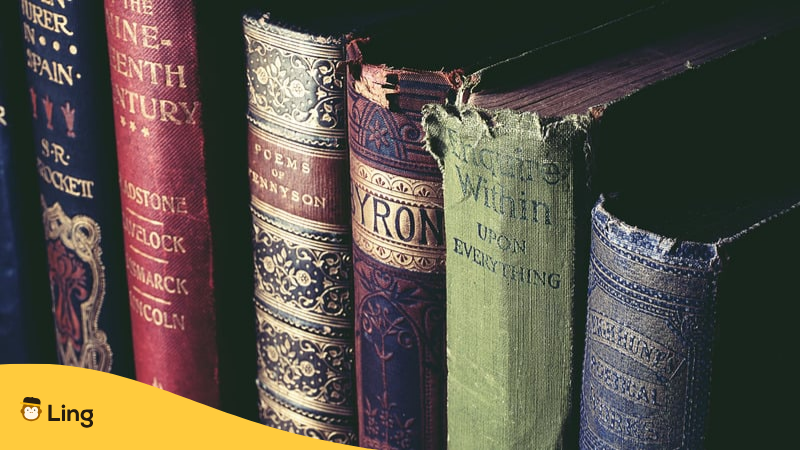
Allama Mohammad Iqbal (1877-1938)
The national poet of Pakistan is Allama Mohammad Iqbal (1877-1938), AKA Allama Iqbal, who was proficient in Persian and Urdu. He advanced the concept of khudi, or selfhood, which urged self-realization and pursuing one’s hidden talents with love and perseverance.
He is frequently referred to as the “poet-philosopher of the East .” He addressed the Muslim Ummah and has known to wake them up from the slumber of slavery. That is considered one of the key reasons why the Pakistani youth was urged to seek independence. He also upheld the wahdatul wujood (oneness of the entity) school of thought.
Rumooz-e Bekhudi, Asraar-e Khudi, Baang-e Daraa, Payaam-e Mashriq, Baal-e Jibreel, Javed Naama, Zaboor-e ‘Ajm, Armaghaan-e Hijaz, and Zarb-e Kaleem are among the poetry compilations that he is known for the most. His lessons and works were compiled in English as a critical review of the Eastern worldview and “The Reconstruction of Religious Thought In Islam.”
His famous poems include:
- گیسو تبدار کو اور بھی تبدر کر – gesu-e-tabdar ko aur bhi tabdar kar (Bright are your tresses, brighten them even more)
- جب عشق سکھاتا ہے ادبِ خود آگہی – jab ishq sikhata hai aadab-e-KHud-agahi (When love teaches literature and self-awareness)
- کبھی اے حقیقتِ منظر نظر آ لباسِ مجاز میں – kabhi ai haqiqat-e-muntazar nazar aa libas-e-majaz mein (The eagerly waited hidden reality)
- خرد مندوں سے کیا پوچھوں کی میری ابتدا کیا ہے۔ – Khird-mandon se kya puchhun ki meri ibtida kya hai (What should I ask the sages about my origin)
- مجنوں نے شہر چھوڑا تو سحرہ بھی چھوڑ دے – majnun ne shahr chhoDa to sahra bhi chhoD de (The devoted lover left the city and the deserts)
- نہ تو زمین کے لیے ہے نہ آسمان کے لیے – na tu zamin ke liye hai na aasman ke liye (You are neither for the earth nor for the sky)
- ستاروں سے اگے جہاں اور بھی ہیں۔ – sitaron se aage jahan aur bhi hain (Beyond the stars there are more worlds.)
- تیرے عشق کی انتہا چاہتا ہوں – tere ishq ki intiha chahta hun (I want the end of your love)
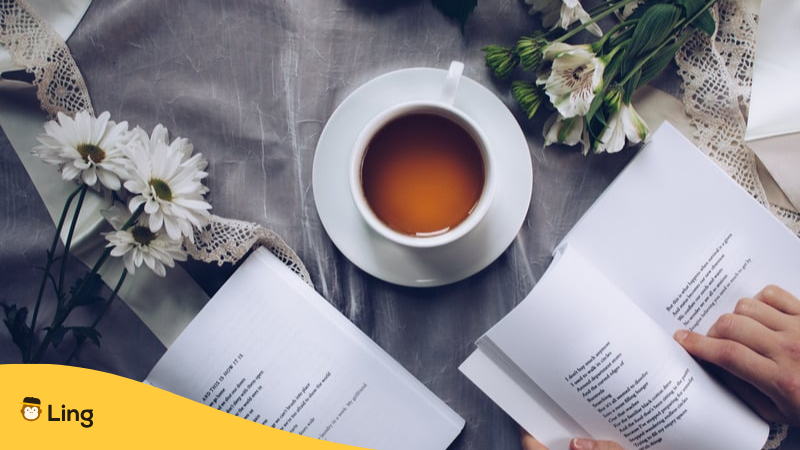
Example Of Urdu Poetry
Let’s now look at a piece considered the best poetry in Urdu.
دشت تنہائی – Dasht-e-Tanhai (Desert Of Loneliness)
This epic piece of poetry was written by Faiz Ahmed Faiz.
دشت تنہائی میں اے جان جہاں لرزاں ہیں
تیری آواز کے سائے، تیرے ہونٹوں کے سراب
دشت تنہائی میں دوری کے خس و خاک تلے
کھل رہے ہیں تیرے پہلو کے سمن اور گلاب
اٹھ رہی ہے کہیں قربت سے تیری سانس کی آنچ
اپنی خوشبو میں سلگتی ہوئی
مدھم مدھم
Romanization
dasht-e-tanhā.ī meñ ai jān-e-jahāñ larzāñ haiñ
terī āvāz ke saa.e tire hoñToñ ke sarāb
dasht-e-tanhā.ī meñ duurī ke ḳhas o ḳhaak tale
khil rahe haiñ tire pahlū ke saman aur gulāb
uTh rahī hai kahīñ qurbat se tirī saañs kī aañch
apnī ḳhushbū meñ sulagtī huī maddham maddham
Translation
In the wilderness of loneliness, O soul, where you are trembling
The shadows of your voice, the mirage of your lips
Under the dust of distance in desert solitude
Summons and roses are blooming on your side
The heat of your breath is rising somewhere near
Burning in its fragrance
Dim dim
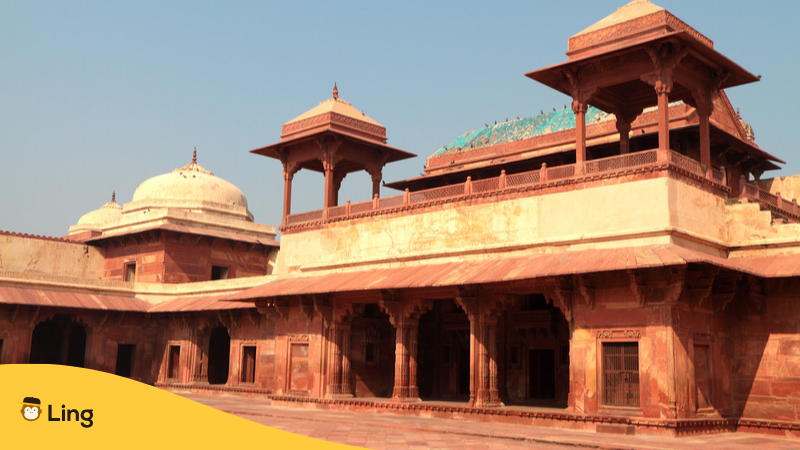
Wrapping Up
And there we have it! You may have learned many essential things about Urdu poetry from this blog post today. In summary, we can say that Urdu poetry and literature are difficult and complex to understand. Still, if you practice and learn the Urdu language and have a perfect grip over its vocabulary, you will master its literature in no time.
Once you learn about these terms, poetry will be a healing subject for you. Urdu poetry can make your brain healthy and relaxed by working with different parts of the brain to be understood. In case you have any words or expressions that you do not know of, you can search on Ling App and get your solutions with adventurous learning.
Download the app now from Google Playstore or App Store and start learning the Urdu language.
Happy Learning!
Updated by Samawiyah Hasnain
